What is like to be a Sixth Form student at Alsager School?
We are incredibly proud of our Sixth Form Students at Alsager School. When they reach year 12 and join A6 they have become the elders of the school community and they soon adapt to their new position as role models for the younger students in the school.
During their time in A6 students are encouraged to be part of a successful and caring learning community which inspires individuals to meet the challenges of the future and to make a positive contribution to the local community. We are proud to be a broad, inclusive Sixth Form which offers a range of courses to suit students of all aptitudes. Every year 12 and 13 student benefits from a caring and enriching learning environment as our pastoral structure ensures that we get to know students as individuals. Most of our Year 11 students stay on with us and every year they are joined by ambitious, hardworking students from other schools. These students quickly settle in and comment on how friendly, welcoming and supportive our whole school community is. At the end of year 13 students move on to a range of destinations including university and apprenticeships in competitive industries. It is always uplifting to hear from students after they have left A6 and to find out about their life after Alsager.
Mrs Pole
Director of Sixth Form
Perhaps the best people to talk about A6 are our students themselves.
“Being a student at A6 totally changed how I am as a person and a student, the demands and the of nature of A levels have encouraged me to work more independently. I soon developed the habit of using my study periods effectively outside the lessons, this is something that will be beneficial for university and later in the workplace. As sixth form students we are also expected to further research beyond the taught content and this only serves to further your passion and enthusiasm for your subject. In a normal day as well as attending lessons in my study periods I work on homework, wider reading and revision. As we are relatively a small sixth form, I know I can have close contact with my teachers who can explain and give me bespoke support with my work. I also know that if I need general advice and support the Sixth Form Team will help guide me through challenges such as job interviews or university. Additionally, I have benefitted from trips to universities, HE fairs and visiting speakers who talk about financial management, gap year opportunities job applications and personal safety to name but a few.
However, the Sixth Form here at Alsager does not expect you just to study, it also expects you to give back to the school or local community and to invest in your own personal development. There are many ways that you can do this, for example you could help run clubs, help in local primary schools or help students as a peer mentor. Giving back is a key part of the Sixth Form ethos and to that end we are active when it comes to charity fundraising. Annually we hold a Macmillan Coffee morning and a sponsored fancy dress walk as well as individual charity events organized by each form. Additionally, you can apply to become a part of the Student Leadership Team and have a key voice in decisions and Sixth Form life as well as developing your self confidence and leadership skills. There is so much on offer to support you and to enable you to develop as a person.”
“My experience as a sixth former was inspiring and absolutely brilliant. Teachers go out of their way and spend time with you to ensure you are reaching your full potential. This is above and beyond anything I could ever ask for from a Sixth Form. From support with UCAS forms and work to support with mental health and well-being the Sixth Form Team are there to ensure that each individual is happy and content.”
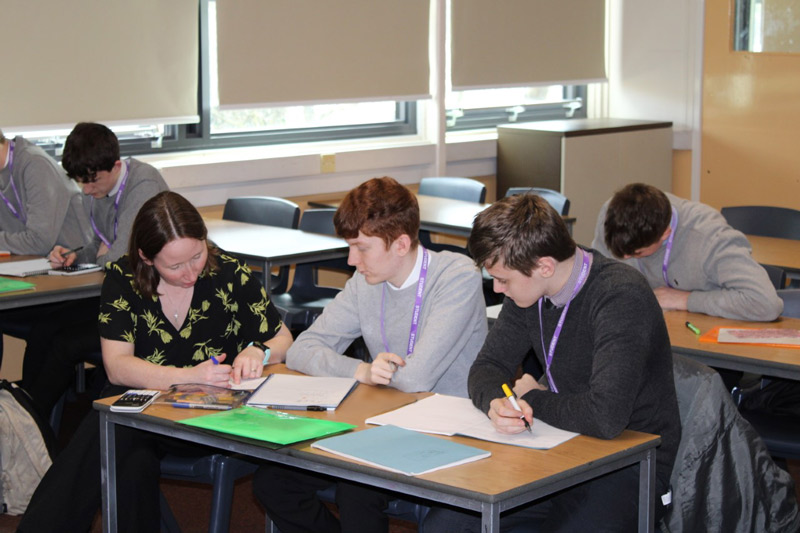
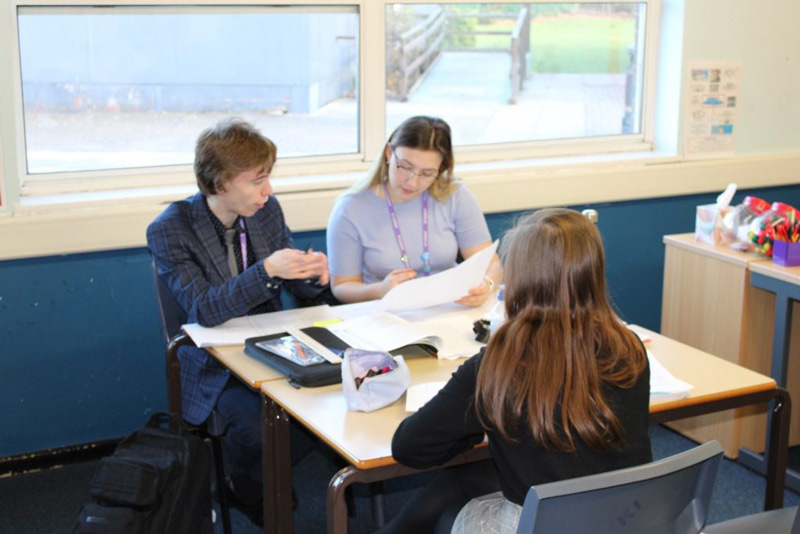
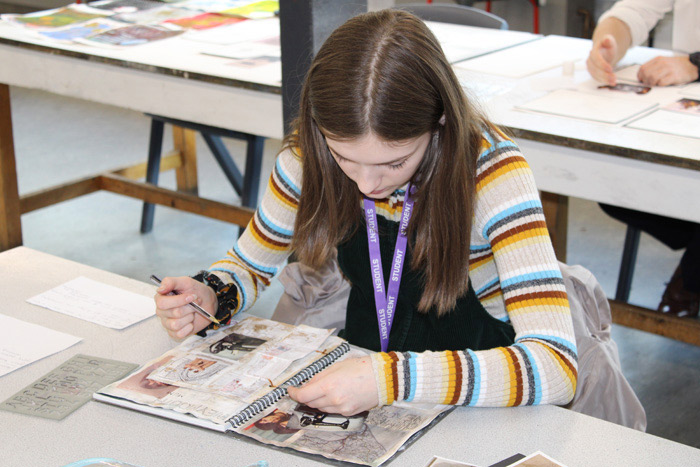
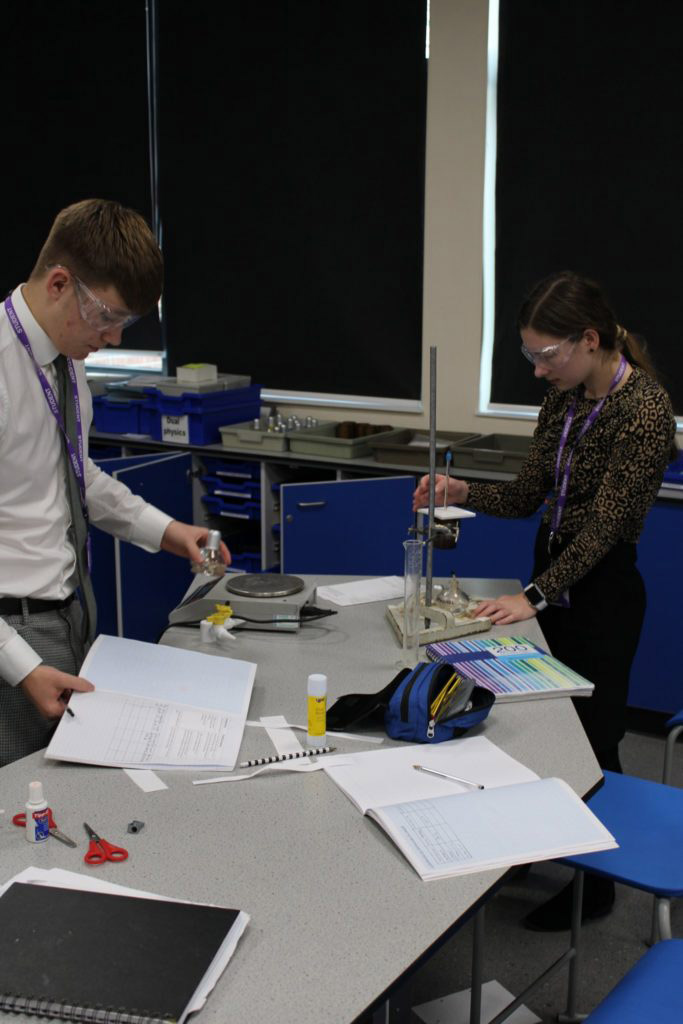
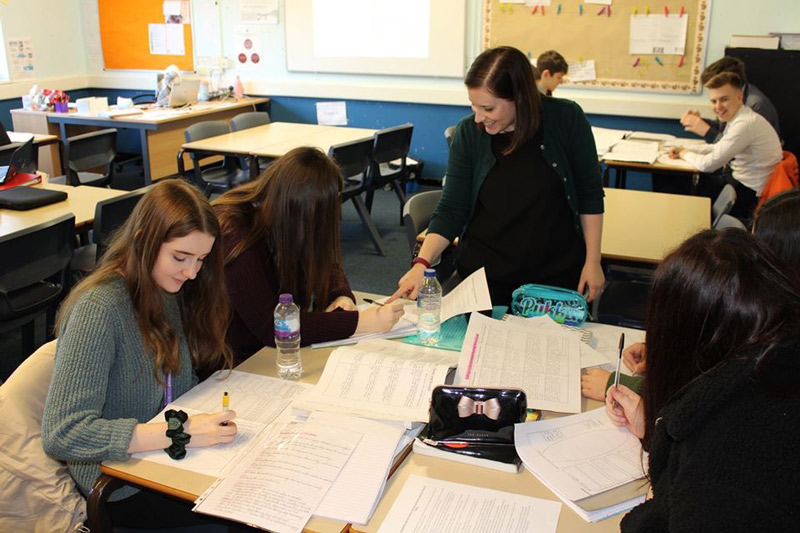
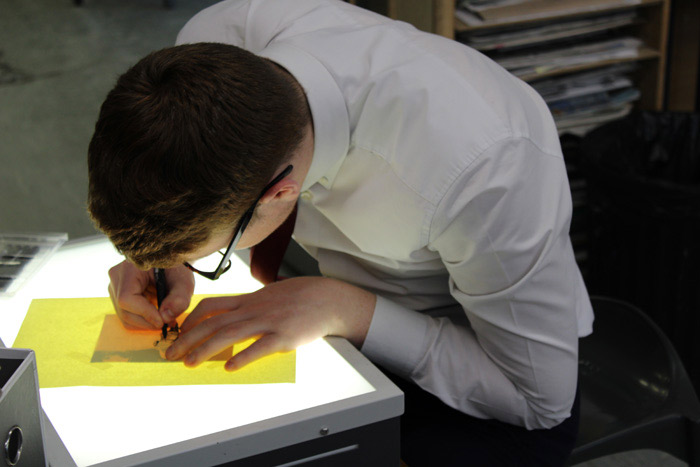
“Being able to organise events such as carol singing at a local old people home has not only helped my interpersonal skills but also impacted on the culture of the Sixth Form and relations with the local community.”
“For me, getting the best out of being in the Sixth Form has been about taking advantage of the opportunities on offer such as the UCAS fair and talks about issues such as finance which inevitably help us to plan our future.”
“Sixth Form studies have enabled me to study subjects in a much greater depth whilst also developing the skills that I need for university.”
“My two years in the Sixth Form have really helped me to develop my self-confidence. I have become more independent and organised and have even taken up a leadership role. However, when I do need help, I know that there are always people in the Sixth Form Office to support me.”
What it is like to be an A level Art & Photography student at Alsager School
The Art department aims to provide an inspiring environment where students can express themselves and develop their creative skills. We offer A-levels in both Fine Art and Photography. In order to give you an insight into what you can expect to study on these 2 courses, we have included a short summary highlighting key features as well as the views of some of our current A-level students discussing their experiences.
Fine Art A-Level
The Fine Art course is a two year A-Level subject where you will develop and learn how to make informed decisions about your own creative artwork and the world around you in a culture of experimentation, exploration and critical reflection. We will support you to become skilled in your ability to use a broad range of art materials and techniques influenced and inspired by the work of contemporary and traditional artists, designers and photographers. You will be challenged to investigate and reflect upon your own practice to take imaginative and creative risks in the artwork you produce.
Building upon the techniques you will learn, you can explore any combination of painting and drawing, mixed media, intaglio printing, photography and digital manipulation using Adobe Photoshop.
Each individual student will develop their own visual style influenced by the workshops we will deliver. The skills you will develop will be wide and varied with a particular focus on personal expression and developing your own unique style and approach. Fine Art is about looking, learning, thinking and communicating about the styles and work of your chosen artists.
At A-level for component 1 you will develop work for a personal investigation into an idea, issue, concept or theme supported by written material. This will count for 60% of your total A-level marks. In component 2 you will produce personal work in response to one of eight exciting starting points which will count for 40% of your total A-level marks.
Photography A-Level
The Photography course is a two year A-Level subject where you will learn how to use a broad range of photographic techniques influenced and inspired by the work of contemporary and traditional photographers, designers and artists. You will be challenged to investigate and reflect upon your own practice and to take imaginative and creative risks in the images you produce. You will be taught the Techniques of Production of photography including Adobe Photoshop and explore Documentary, Still Life and Abstract photography before developing a personal project. We provide you with your own Sixth Form Studio in D10 with access to computers in which you can develop your portfolio outside of lessons. The course is designed using Microsoft OneNote and your final portfolio will be a digital Flip eBook that can be accessed online.
Each individual student will develop their own visual style influenced by the taught photographic workshops. The skills you will develop will be wide and varied with a particular focus on personal expression and developing your own style and approach. The most exciting aspect of photography is that you are capturing the world as you see it through your own eyes.
Here in the Art Department we help students to learn in a supportive environment. I love teaching both Fine Art and Photography because it is truly inspiring to see how students embrace the skills they learn and then apply these in their work. The subjects we teach give students a platform where they can show-case their creative flair and express themselves in a way that is unique to Fine Art and Photography.
Mrs Donathy
Assistant Curriculum Leader for ADT
How is the A level different to GCSE Art?
“A-level art is an opportunity to develop the artistic skills you developed at GCSE but in a much more expressive and personal way. Each student has the opportunity to establish a personal style which was introduced towards the end of year 11” (Fine Art student)
“A level Art is relatively similar to GCSE, in the sense of the format of the coursework and the exam structure, meaning that the transition between year 11 and year 12 feels less of an overwhelming jump. Nevertheless, at A Level, students are given a lot more freedom as to what they want to do with their coursework. The Art Department at A Level provides a relaxed environment in which we can quietly get on with our work- I am always in there when i have non-contacts!” (Fine Art student)
What advice would you give to a GCSE student who is considering taking it at A Level?
“Ensure that you have a real passion for the subject as it requires dedication, effort, and a creative flare. Coming up with new ideas and concepts for your art can be tricky when its expected of you regularly, but a true artist flourishes under these conditions and utilizes the creative push, using this as an opportunity to demonstrate their skills and enjoy the creative process” (Fine Art student)
“My advice for going into A level Art is don’t expect to create a masterpiece straight away. It takes time, dedication, hard work and resilience” (Fine Art student)
“I highly recommend that you take it as it is a very friendly environment to work in. For me it truly brought out the artist in me and I am sure it will bring out the artist in you. I am still amazed that the teachers are equally as enthusiastic as the student to your work and are always ready to lend a hand and guide you forward. Since joining sixth form the department became my second home and I never complain about always being here as it’s so calm and friendly” (Photography student)
What has been the most enjoyable aspect of the course for you?
“I have really enjoyed being able to use different materials and media in my art as I find it therapeutic” (Fine Art student)
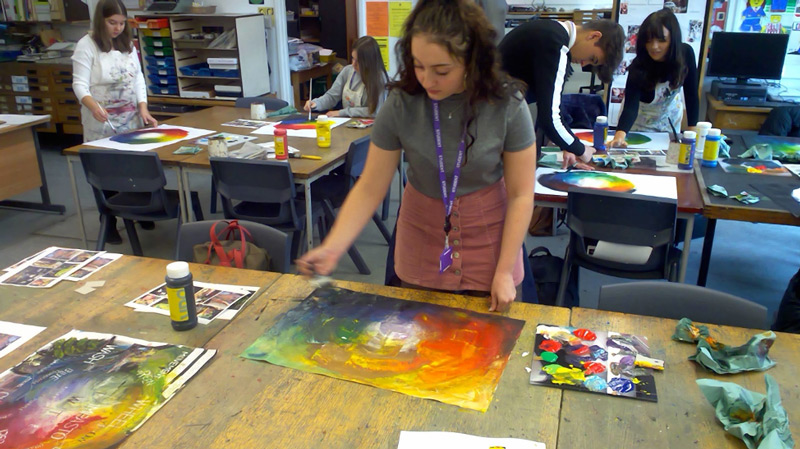
“Personal projects are definitely my most enjoyable aspect as you get to work with what you love and present a portfolio you are happy and confident with” (Fine Art student)
“The most enjoyable part of the course for me is when I’m setting up the shoot that I want and then looking at the photos that it produced. This is because it helps me to identify what I need to do to make my shoots better. We have explored how to change the exposure, aperture and shutter speed and this was useful in the way that I can change them to suit the different shoots that I’m doing” (Photography student)
What techniques and approaches have you explored?
“Since starting A Level Art, my ability to experiment, and be expressive has definitely developed. We’re constantly encouraged to push ourselves and try out new techniques, which really pays off later on in the course. When studying Clare Woods, we delved into abstract painting, and emotive colour use. Prior to that project, we explored a multitude of drawing techniques and illustrated natural forms. For me, Art is a development process and I’m constantly learning from my successes and failures” (Fine Art student)
“Within the course I have learnt how to use a camera manually and explored different camera techniques and tricks to make my images look better. For example, I have learnt how to paint with light. Painting with light is where you lengthen the shutter speed of your camera so that it takes the picture slower” (Photography student)
“I experiment with colour, different types of media and materials to create my pieces. I really enjoy creating art from natural forms and landscapes” (Fine Art student)
“In the beginning of the course we focused on natural forms and how photography can be used to alter how vibrant an image looks. Taking inspiration form Clare Woods, we produced concertinas, photography sheets and our own studies” (Fine Art student)
How have you been challenged?
“It can be challenging to generate new ideas and creative thoughts on a regular basis, but for anyone brimming with new ideas and inspiration, this should come easily. In fact, this provides an outlet for your creativity to flow” (Fine Art student)
“From the beginning of year 12 the pieces you create begin to build your portfolio therefore it is important to manage your time wisely. I have found that utilising my non-contacts to come to the art department is highly beneficial” (Fine Art student)
“I have been challenged to the task of learning how to use Photoshop and what you can do on it, also I have been challenged on how to use the camera manually rather than automatic meaning you control every aspect of the lens” (Photography student)

“Making sure the camera settings are right. Sometimes, it’s difficult to get the exposure correct or the focus correct because they aren’t on the right settings and this makes the photo’s come out wrong, either too dark or light or not being able to tell what the photos are” (Photography student)
What it is like to be an A level English student at Alsager School
The English department offer A levels in both English Language and English Literature. We have included a short summary of what you can expect to find on these 2 courses and also the views of some of our current A level students.
English Language A level
A Level English Language will enable you to study a wide range of texts from a range of time periods. It allows you consider different approaches of analysis and you will be able to apply the views of a range of theorists as well as contributing your own ideas and beliefs on the English language to analytical essays. Furthermore, there are various elements of creativity included within the course which are tested both in the exam and in the coursework components. You will be able to study the language in real world contexts for example, what impact has technology had on the way we speak? How do children learn to acquire language? Is our language gendered at all? This A level offers you fresh perspective on the English language.
English Literature A level
Do you love that feeling of getting lost in a great book or the feeling you get when that analytical point just clicks? A Level English Literature involves the study of a wide range of texts, including prose, poetry and plays, so a love of reading is a must. Students will study Shakespeare’s ‘Othello’, Arthur Miller’s ‘Death of a Salesman’ and a selection of John Keats’ poetry through the lens of Tragedy (Paper 1). Students will also study a range Crime Writing (Paper 2) such as Ian McEwan’s ‘Atonement’ and Coleridge’s ‘The Rime of the Ancient Mariner’. Students are expected to read widely outside of class. This course will allow you to explore, discuss and analyse a wealth of writers and engage with their views as well as offering your own interpretations on key moral matters.
Mrs Martin (Curriculum Leader for English)
How is the A level different to GCSE English?
“The main difference is that we get to delve into the underlying philosophy of how the language works, what it’s about and how it got to this point.” (English Language student)
“It’s so different from the GCSE. We look at the language itself, how the language has formed, why it has formed and even how children acquire it.” (English Language student)
“While GCSE explored certain genres at a specific point in time, A level allows you to explore the changes of crime and tragedy texts as the era of the text’s publishing is essential to shaping meaning.” (English Literature student)
How do the skills developed across your A level literature and language course help support other subjects you do?
“English language requires patience to learn a range of terms and theory, but It has taught me to see things from a different perspective.” (English Language student)
“By taking both Englishes at A level, the language skills I have developed in English language have helped me to create a much more focused, in depth analysis for literature. Alongside this, the context I have studied in literature can give you a greater understanding of history and a much clearer base for analysis in a variety of other subjects. (English Language & Literature student)
“Both language and literature have given me the ability to understand language within different contexts and I feel this will really help me in later life eg: in the workplace.” (English Language & Literature student)
What makes English such an interesting A level?
“Through the wider reading we do, I’ve learnt a range of research skills that I can apply to my other A level subjects. English language does not just endorse learning in the classroom but also gives you the skills you need for independent study at university and beyond.” (English Language student)
“The uniqueness of our language interests me. How language can differ from one person to the next through accent or gender or even just their physical context.” (English Language student)
“The fascination with English literature come from the opportunity to explore the expertise of some of the world’s most talented writers. Especially within plays like Othello and Death of a Salesman, the hidden meanings behind some of the writer’s most subtle decisions make English literature such an interesting A level.” (English Literature student)
What made you choose English A level?
“Universities seem to like the fact that I study literature as the depth of analysis required helps prepare students for subjects such as law.” (English Literature student)
“I run my own blog so the opportunity to learn how to shape meanings through language made this course an easy choice for me. I wanted to learn how to use language to best express my opinions.” (English Language student)

Alsager School is one of the highest performing schools in Cheshire East. Take a look at our prospectus to find out more.
Alsager School, Hassall Road, ST7 2HR
© 2023 All Rights Reserved